Full-Time or Part-Time MSW? How to Choose the Best Fit for Your Life
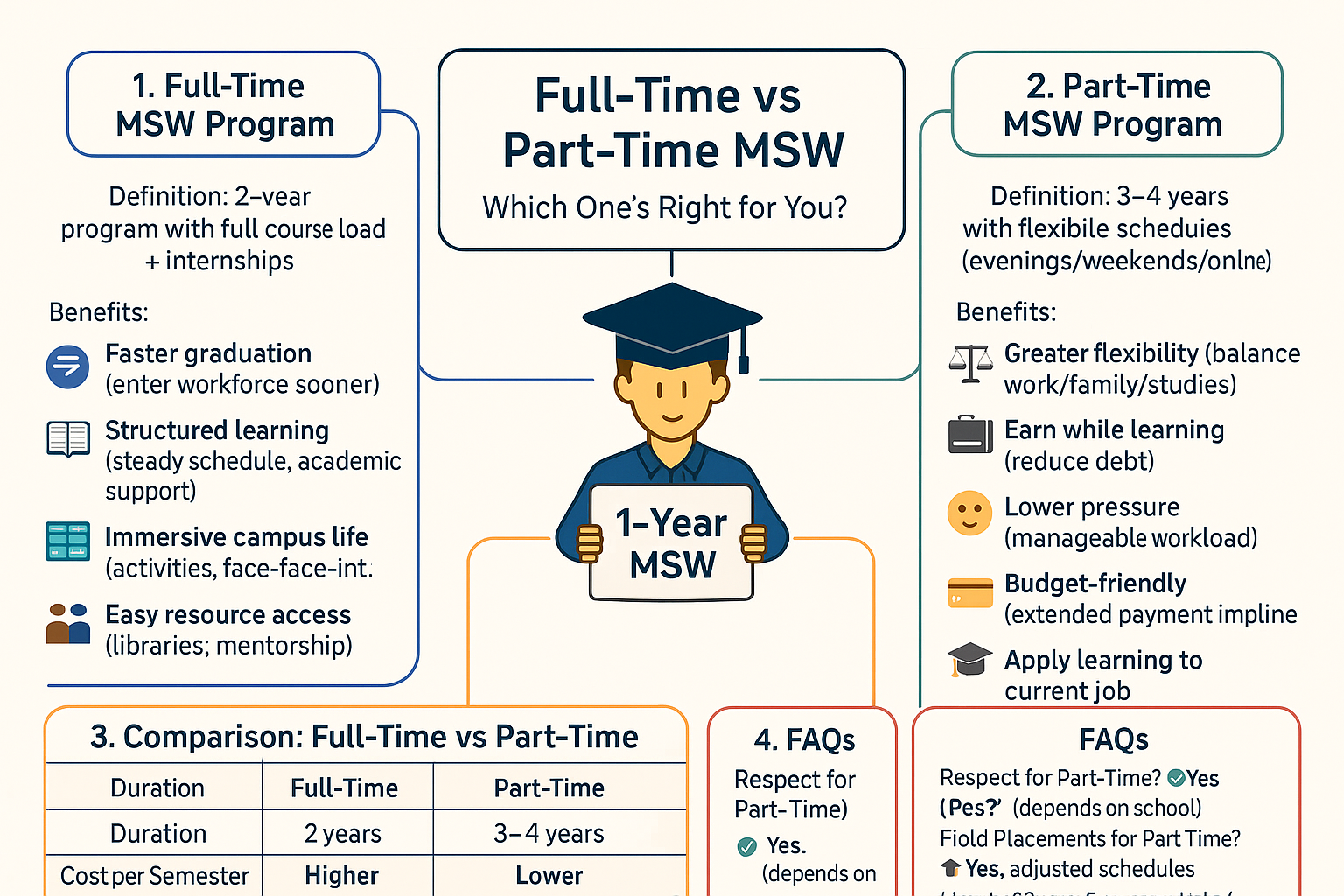
Are you planning to pursue your Master’s in Social Work (MSW) but not sure whether to go full-time or part-time? Choosing the right format for your MSW can lead to a more successful and fulfilling experience. Let’s break down the pros, cons, and ideal fit for each path.
What Is a Full-Time MSW Program?
A full-time MSW typically lasts 2 years. Students take a full course load and complete internships alongside their studies.
Benefits of a Full-Time MSW Program
Faster Graduation
Complete your degree in about 2 years, helping you enter the workforce sooner and start building your career quickly.
Structured Learning Environment
Stay on track with a steady course load, regular class schedules, and strong academic support from faculty.
Immersive Campus Experience
Be more involved in school activities, peer discussions, and face-to-face interactions with professors and classmates.
Easier Access to Resources
Frequent use of on-campus resources like libraries, advising, networking events, and faculty mentorship.
Strong Peer Connections
Build relationships with a consistent group of students who move through the program at the same pace.
Related: Is MSW Advanced Standing Worth It? Pros & Cons Inside
What Is a Part-Time MSW Program?
A part-time MSW spreads coursework over 3 to 4 years, allowing for greater flexibility. It is designed especially for working professionals, parents, or individuals with other major time commitments. Courses are typically offered in the evenings, weekends, or online, making it easier to balance education with life responsibilities. Students still complete the same curriculum and fieldwork as full-time students, just over a longer period. Some schools even allow students to tailor the pace depending on their availability each semester.
Before deciding on online or in-person, compare MSW vs MSSW vs MSSA degrees to narrow down your choices.
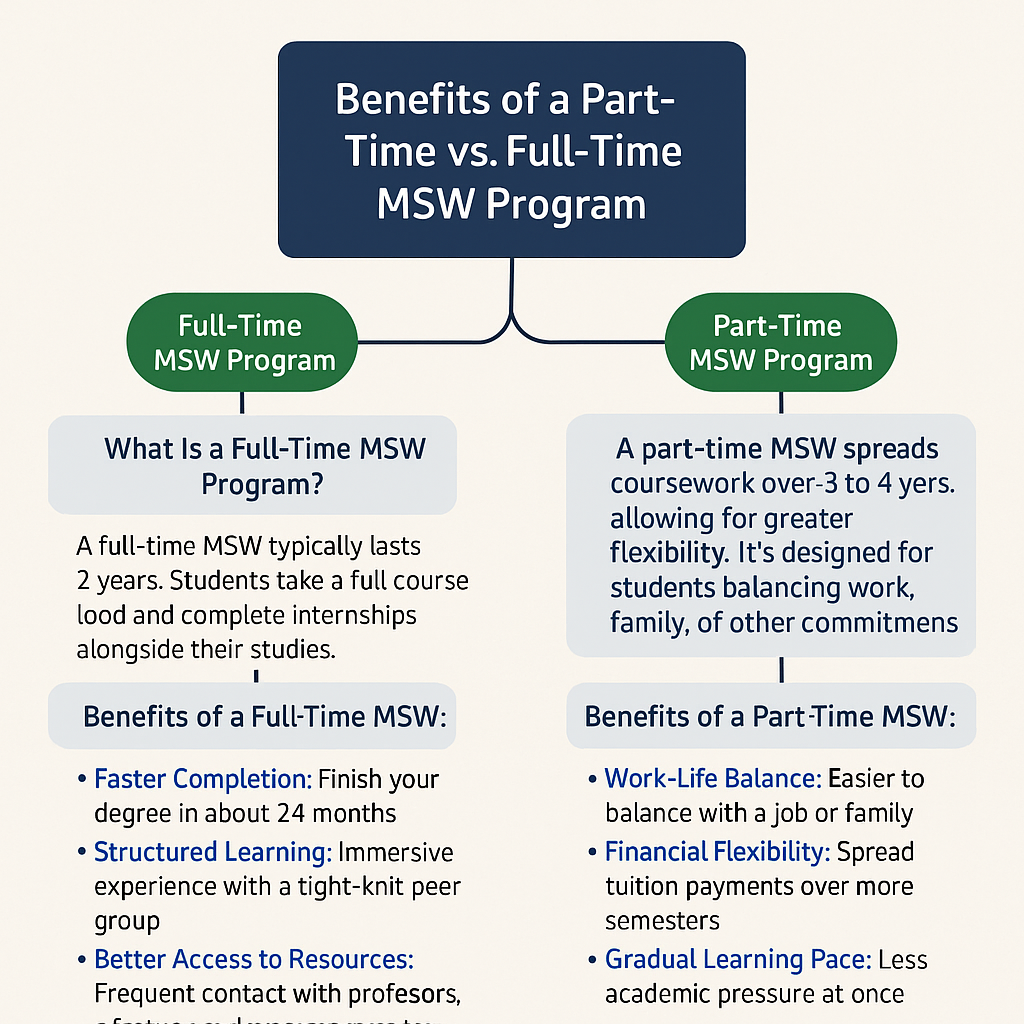
Benefits of a Part-Time MSW Program
Greater Flexibility
Study at your own pace while managing work, family, or other responsibilities more easily.
Keep Earning While You Learn
Continue working while studying, which can help reduce student debt and maintain financial stability.
Lower Pressure
With fewer classes per term, the workload is more manageable, making it less stressful over time.
Extended Payment Timeline
Tuition is spread over more semesters, which can make it easier to budget and plan finances.
Real-World Experience While Studying
Apply your coursework directly to your job if you’re already working in the field—boosting learning and career growth.
start your career: Is an Accelerated MSW Program Right for You?
Comparing Full-Time vs Part-Time Master’s in Social Work Degree
| Feature | Full-Time MSW | Part-Time MSW |
| Duration | 2 years | 3–4 years |
| Work-Friendly | No | Yes |
| Cost Per Semester | Higher | Lower |
| Networking | More opportunities | Fewer interactions |
| Best For | Recent grads, those who can study full-time | Working professionals, parents, career changers |

Tip: If you’re looking to dive in and finish fast, go full-time. If you need balance and flexibility, part-time may be your best bet.
Notable Program Updates for 2025
- University of Pittsburgh: Launching a new part-time online MSW in Fall 2025 with in-state tuition for all students.
- Rutgers: Offers an online MSW program with flexible entry dates and two duration options (2-year & 3-year).
Top MSW Programs to Consider in 2025
| University | Official Website |
| University of Michigan School of Social Work | ssw.umich.edu |
| University of North Carolina at Chapel Hill | ssw.unc.edu |
| University of Washington | socialwork.uw.edu |
| University of Pittsburgh | socialwork.pitt.edu |
| Rutgers School of Social Work | socialwork.rutgers.edu |
Explore More
Read the full guide on Master’s Degree in Social Work to explore different MSW pathways, specialties, and program types.
Conclusion
Both options lead to the same goal—a rewarding career in social work. The best choice depends on your schedule, finances, and lifestyle. Take time to reflect on what fits your journey best. Coming up tomorrow: Can you apply for an MSW without a BSW? We’ll answer that in detail!

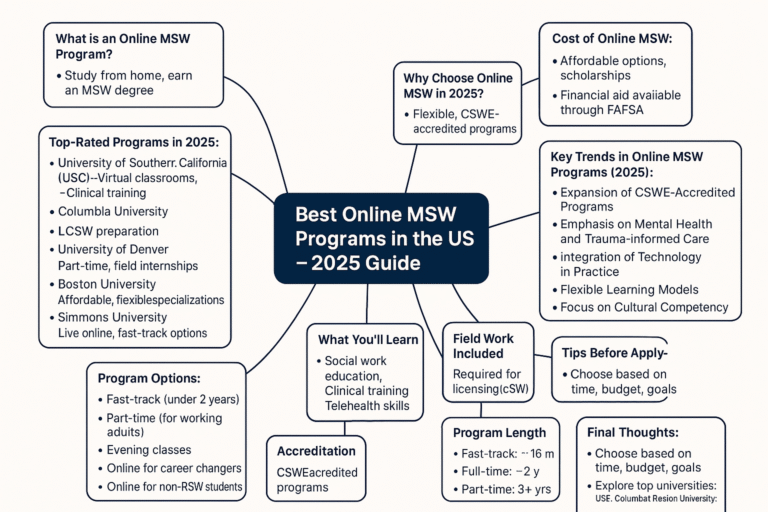
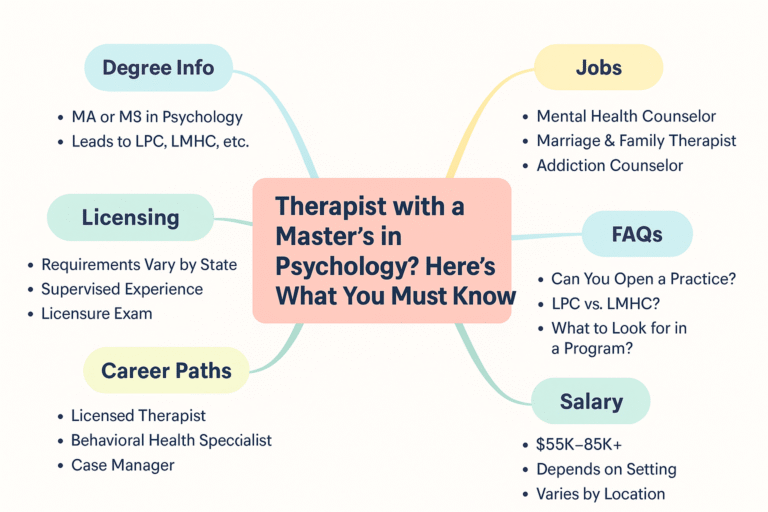
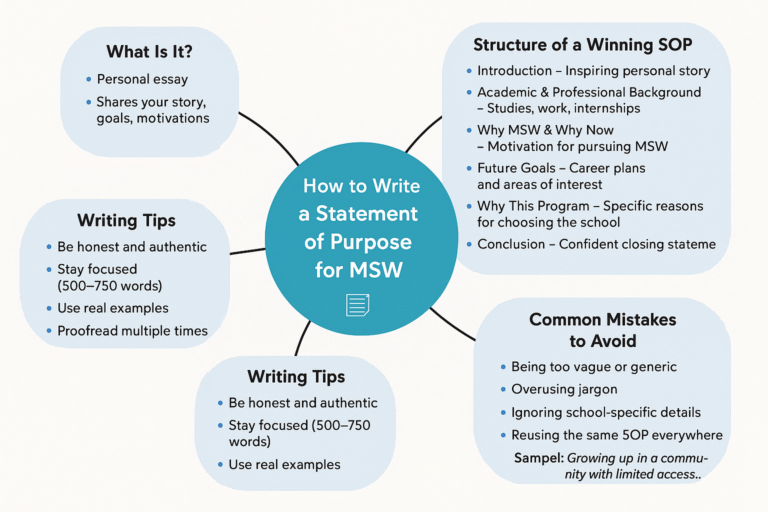
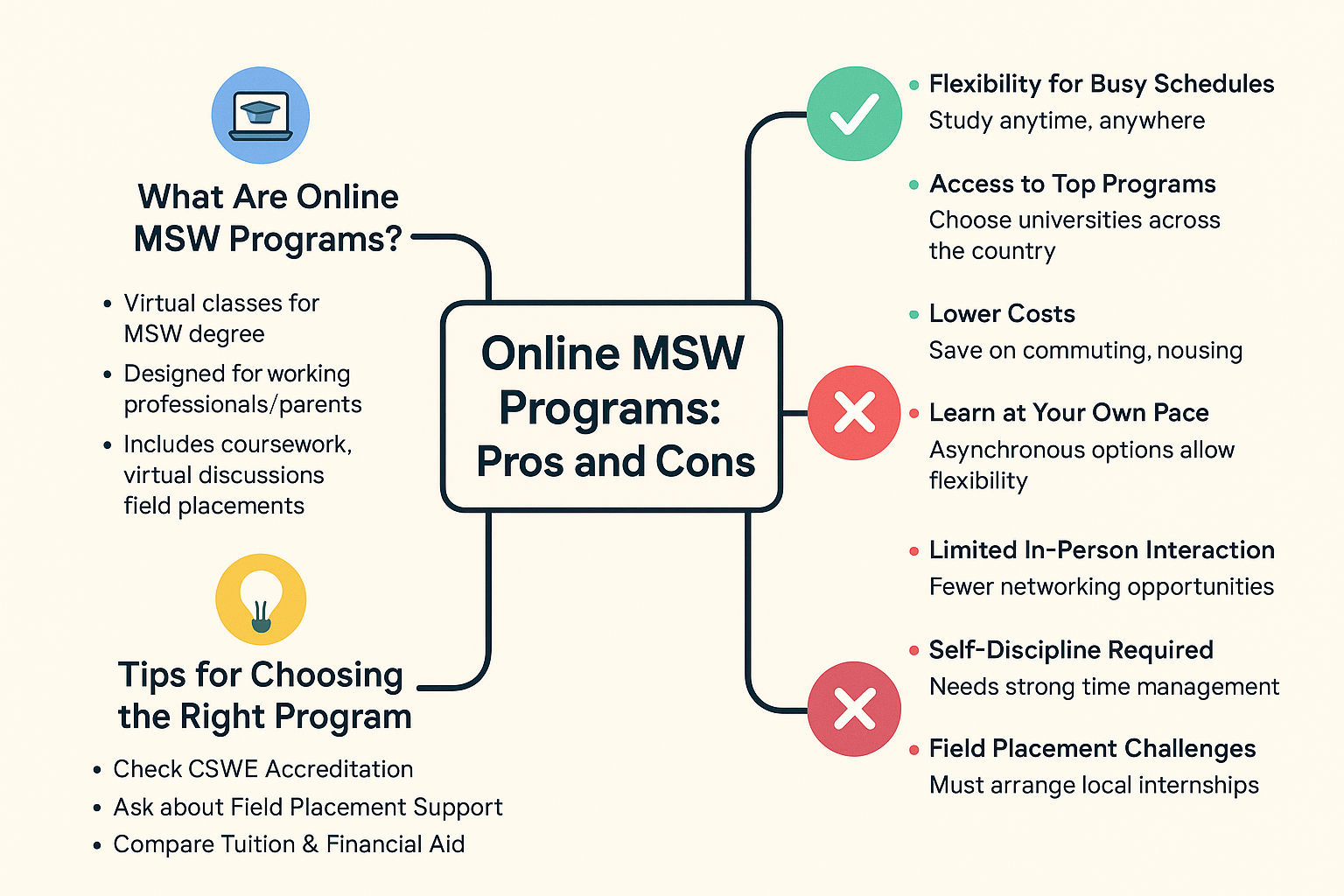
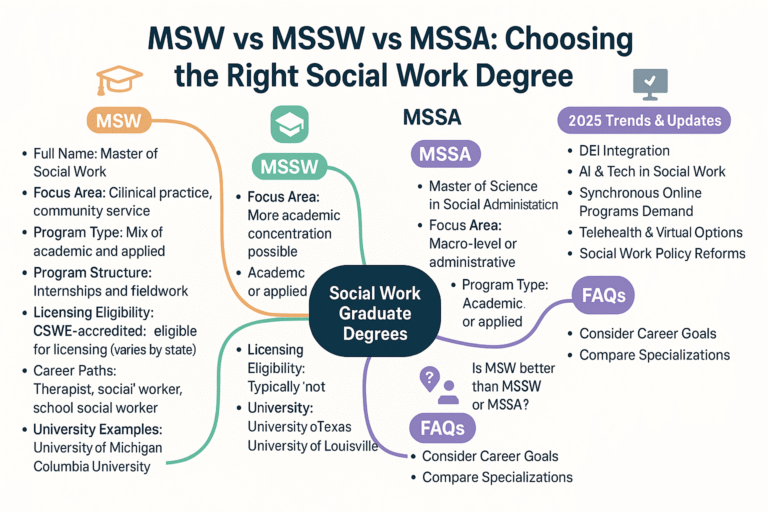

2 Comments